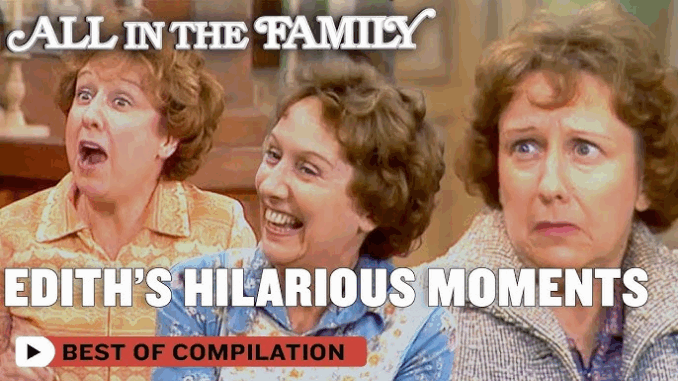
When All in the Family premiered on CBS in January 1971, it didn’t just introduce a new kind of sitcom—it detonated a cultural bomb in the middle of American prime time. For the first time, audiences weren’t just laughing—they were gasping, debating, and in many cases, protesting.
The pilot episode alone tackled racism, menopause, and the Vietnam War—all in under 30 minutes. The network received hundreds of letters immediately after the show aired. Some viewers were outraged by Archie Bunker’s blunt language and unapologetic bigotry. Others praised the show for daring to say what most programs avoided.
What shocked many was that these were not fringe views being parodied—they were mainstream, held by millions of Americans. Archie was, in many ways, a reflection of the silent majority: a man confused by rapid social change, angry at what he didn’t understand, and terrified of becoming irrelevant.
But All in the Family didn’t just stir controversy—it sparked conversations across the country. Families discussed it over dinner. Newspapers debated it in op-eds. College campuses dissected it in lectures. The show became a shared national experience, week after week, bringing difficult topics into American homes with unprecedented honesty.
It also forced television executives to rethink what was acceptable. For years, networks had shied away from anything “too political.” But the success of All in the Family proved that audiences were not only ready for complex social issues—they craved them.
As critic John Leonard wrote in The New York Times in 1972, “All in the Family is not dangerous because Archie Bunker is a bigot. It is dangerous because it makes us recognize parts of Archie in ourselves, our parents, our neighbors.”
For all its controversy, the show never encouraged hatred. Quite the opposite. It used satire to expose prejudice, and character to inspire empathy. Over time, many viewers who initially identified with Archie began to question their own beliefs. That’s the true power of the show—not just to reflect society, but to challenge it.
In an age of echo chambers and digital divides, the legacy of All in the Family feels more urgent than ever. It reminds us that progress often starts with discomfort, and that sometimes, the most radical act is simply telling the truth—out loud, in front of millions, and in prime time.
